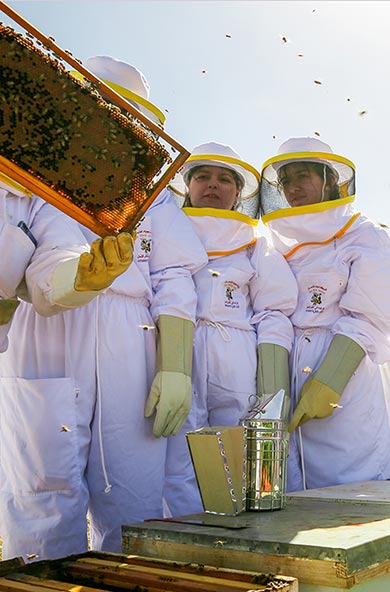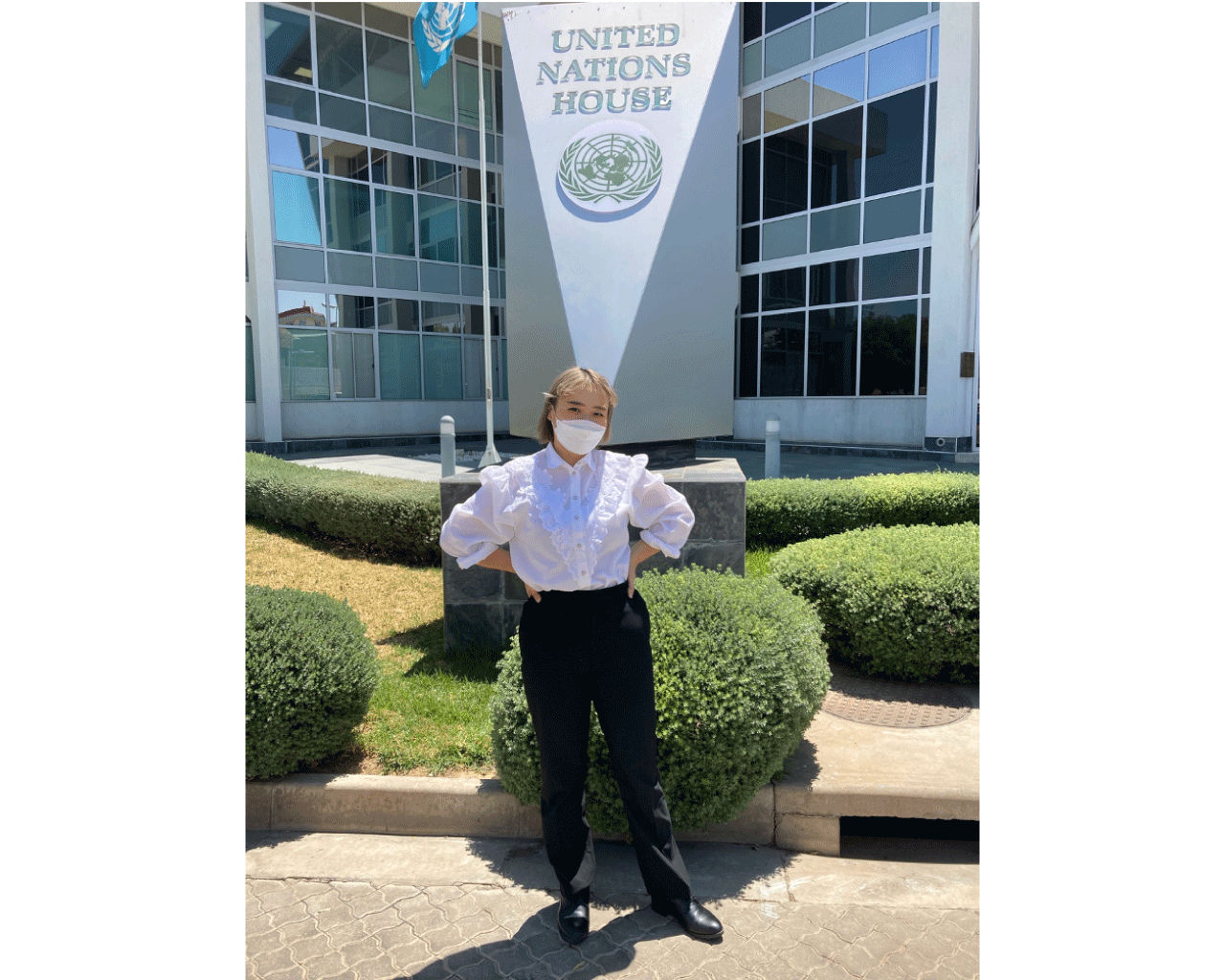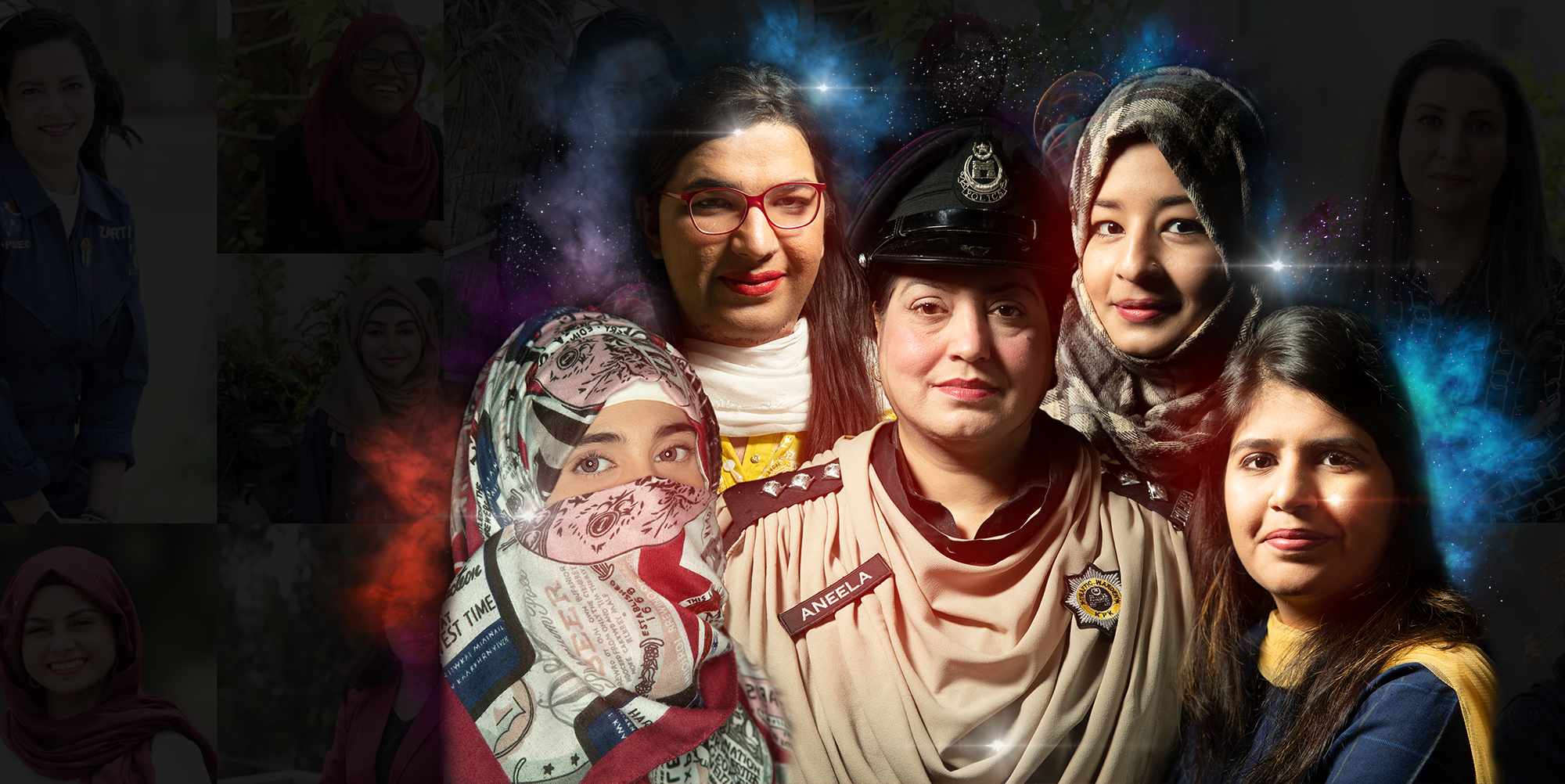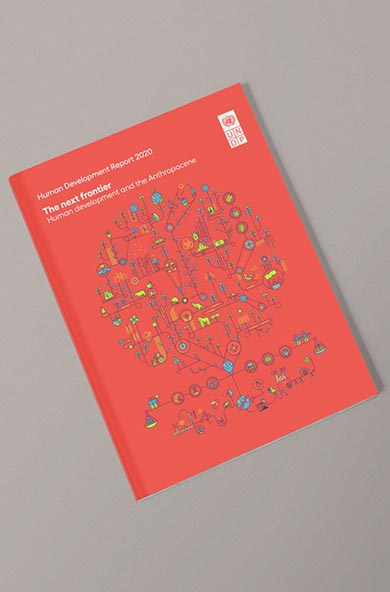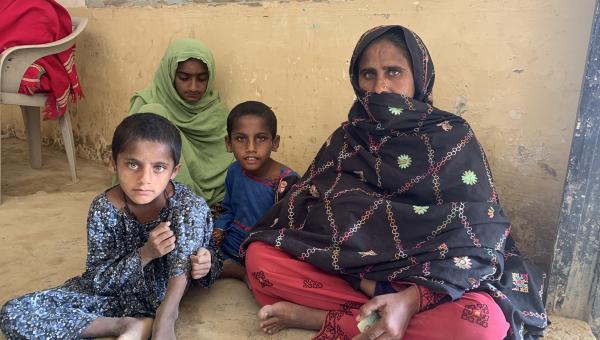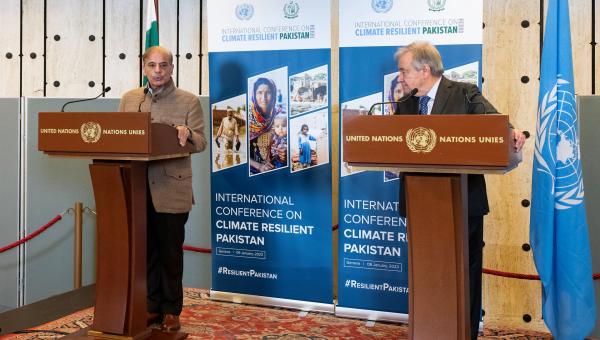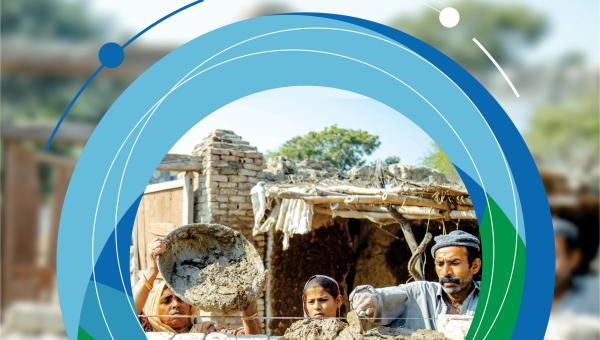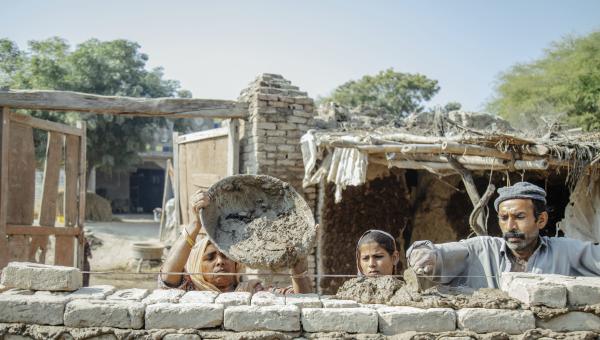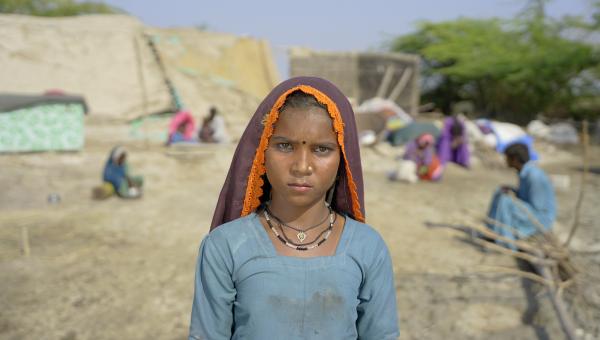UNDP Pakistan
FLOOD RECOVERY PROGRAMME

The 2022 floods were Pakistan worst disaster in decades
33 MILLION
people impacted
$30 BILLION
in Loss and Damage
8 MILLION
people pushed into poverty
2 MILLION
houses destroyed
The Post-Disaster Needs Assessment (PDNA) estimates total damages to exceed USD 14.9 billion, and total economic losses to reach about USD 15.2 billion. Estimated needs for rehabilitation and reconstruction are at least USD 16.3 billion.
Flood Recovery Programme
UNDP’s approach to resilient recovery in Pakistan spans the humanitarian-development nexus, and will bridge short, medium- and long-term dimensions of the response, with underlying principles of gender equality and environmental sustainability integrated into all activities.
Based on the needs and comparative advantage of UNDP, the Flood Recovery Programme would be implemented through the following four major pillars.
Aligned with Pakistan's Resilient Recovery, Rehabilitation, and Reconstruction Framework (4RF), UNDP programme builds on four major pillars designed to restore housing and community infrastructure, livelihoods, and government services, while also building disaster resilience and ensuring environmental protection.
In line with UNDP's Crisis Offer, the Programme would be implemented in close cooperation with the relevant government stakeholders at the federal, provincial and district levels. Building on the initial support provided during the early phase of the floods, a “Whole of UNDP” approach would be adopted to ensure that all Programme units work together in synergy to achieve maximum value for resources optimizing impact and avoiding duplication of resources.
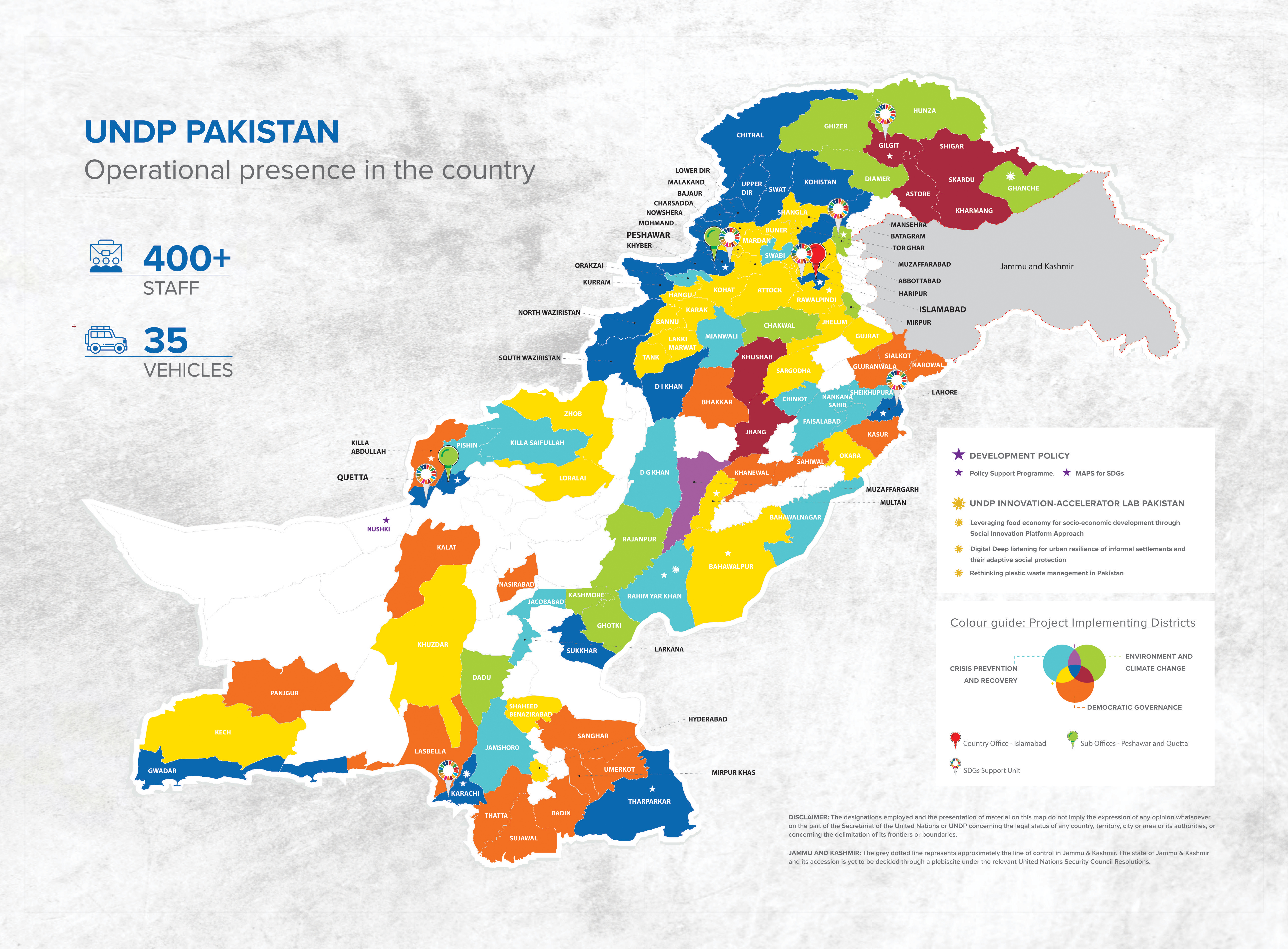
Gender Inclusive Recovery
The UNDP Flood Recovery Programme recognizes the critical role of women in the recovery process. Recovery and stabilization solutions offer significant scope to jump-start structural changes, reset negative social norms and open opportunities for women's full and equal participation in economic life.
By providing housing and thereby reducing women's exposure to gender-based violence, and by advancing equal access to knowledge, skill-building and credit through employment and livelihood initiatives, the Programme will help ensure that the physical and economic security and empowerment of women are central to sustainable recovery plans.

Budget
UNDP aims to mobilize $US 90 Million in support to the people of Pakistan on the four main pillars. See the breakdown below:


 Locations
Locations


